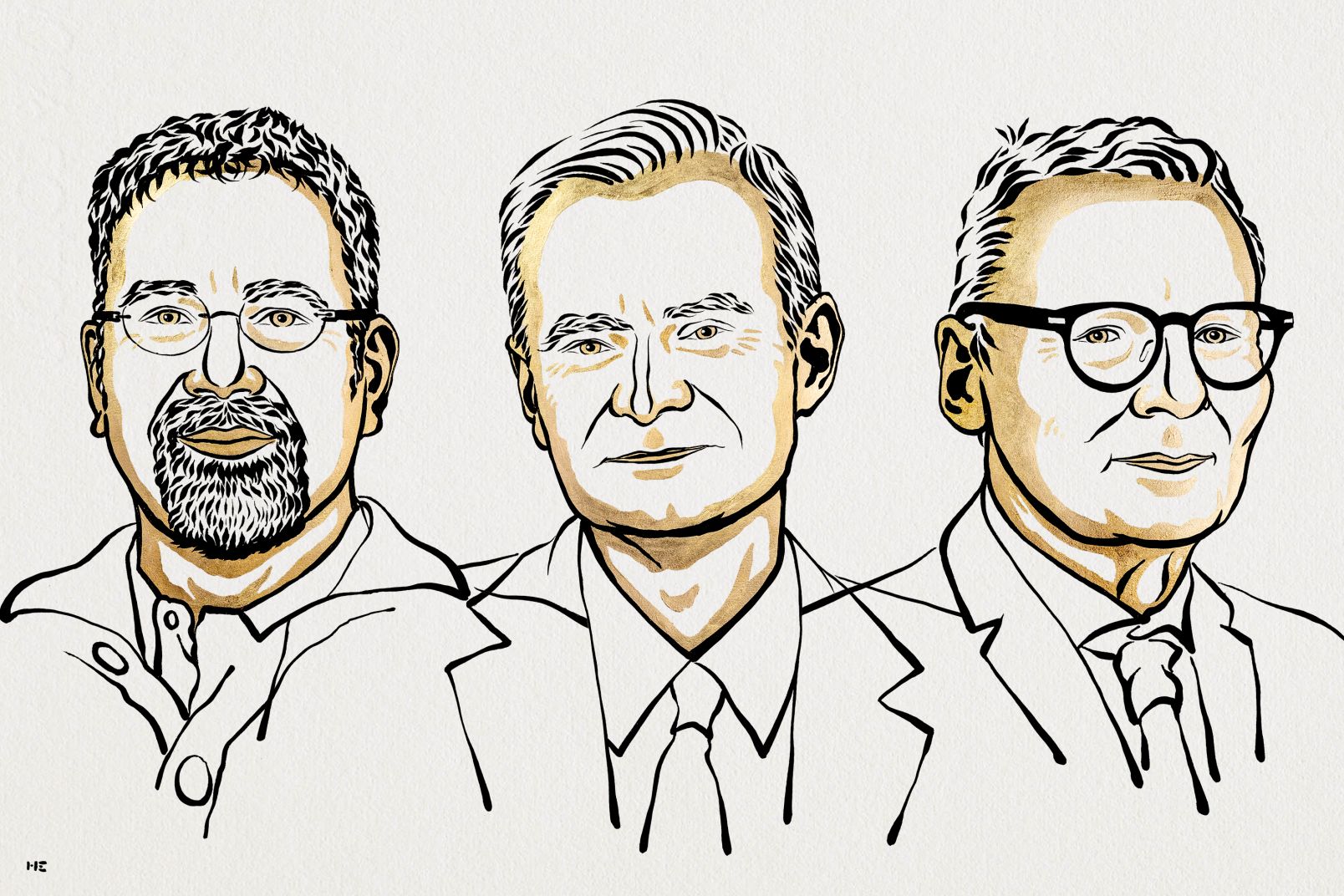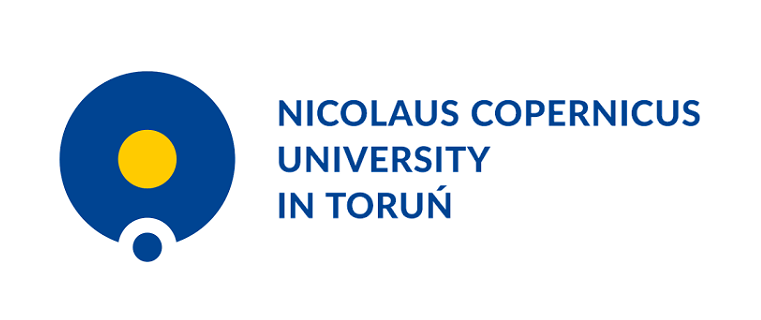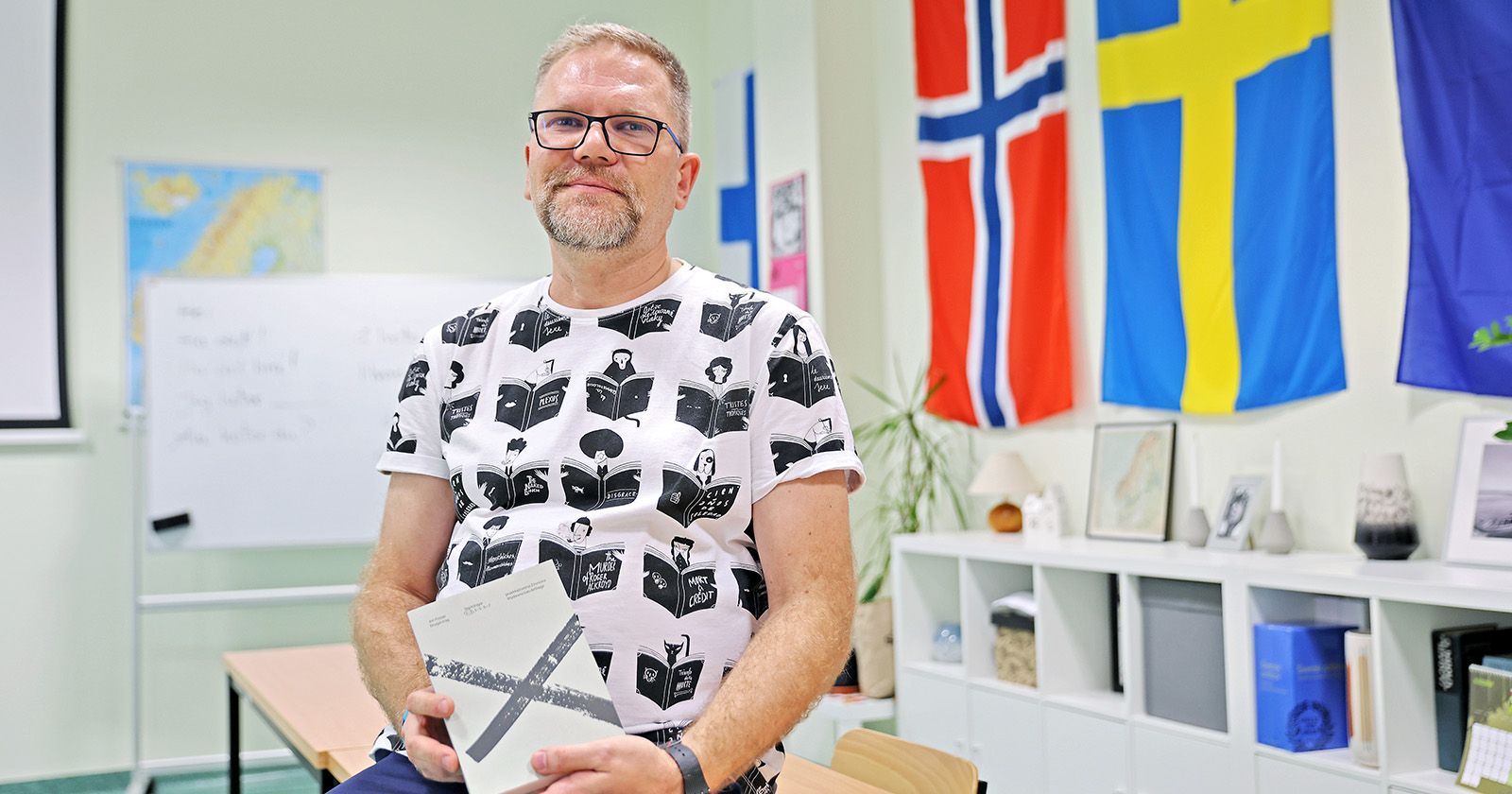 Social sciences
Social sciences
Economic Sciences Nobel Prize: Institutions and Prosperity
Daron Acemoglu, Simon Johnson and James A. Robinson were awarded the Sveriges Riksbank Prize in Economic Sciences in Memory of Alfred Nobel 2024 commonly referred to as the 'Economics Nobel'. The academics were recognised for their 'research on how institutions are created and how they affect prosperity'. Dr habil. Jerzy Boehlke, NCU Prof. from the Faculty of Economic Sciences and Management, introduces their profiles and achievements.
For the 56th time, the Nobel Committee has awarded the Prize in Economic Sciences. It was awarded to three very well-known American economists: Daron Acemoglu and Simon Johnson from the Massachusetts Institute of Technology and James A. Robinson from the University of Chicago. The latter was also chief economist of the International Monetary Fund from 2007 to 2008. The prize was awarded for research on the importance and impact of institutions on social prosperity.
The problem field of institutional change, which has been developed for several decades within the heterodox stream of economics, is a response to the challenges of seeking answers to the questions that continually trouble economists about the sources of countries' economic successes and failures over the long term, the existing huge income inequalities in the world, the effects of colonisation processes, the course of long-term economic growth paths, the historical development of technology and demographic change. However, while in mainstream economics research has mainly focused on developing theories of sustainable economic growth in market economies as those that guarantee the realisation of the condition of economic efficiency, institutional economics attempts to recognise and explain the phenomena observed in the world of differing levels of development and wealth of countries. The causes of this differentiation are seen in the historically shaped and socially constructed institutional order.

Ill. Niklas Elmehed © Nobel Prize Outreach
This year's Nobel Committee laureates in economics share a body of research that represents important achievements in institutional economics for the study of the processes of variation in economic development and prosperity in the world. In particular, it is important to mention the work of D. Acemoglu and J.A. Robinson's Why Nations Fail: The Origins of Power, Prosperity, and Poverty (2012) and The Narrow Corridor (2019), and D. Acemoglu and S. Johnson Our Thausand-Year Struggle Over Technology and Prosperity (2023). These are certainly positions of fundamental importance in institutional economics. Supported by extensive historical research, they have led their authors to conclude that development inequalities between countries are a consequence of existing social institutions, understood as socially formed and respected norms, rules of action and constraints affecting decision-making. Widely known among economists is the division of institutions into inclusive ones, adopted by D. Acemoglu and J.A. Robinson's division of institutions into inclusive (inclusive) and exclusive (exclusionary) ones. Only inclusive institutions are conducive to accelerating economic development and increasing social prosperity. Such examples of inclusive institutions may include: respect for individual freedom, effective enforcement of property rights, the existence of the rule of law, an efficient state, rules for the issue and circulation of money, an efficient tax system, a socially acceptable way of exercising political power, religion, or respect for ethics, etc. In contrast, exclusionary institutions are not conducive to the growth of social prosperity.
Acemoglu and S. Johnson have also analysed the social and economic consequences of the historical process of technology development. In their view, technology does not automatically produce social goods and provides benefits mainly to a narrow elite. They also express a critical attitude towards artificial intelligence. It negatively affects wages and democracy. Without reforms involving the design and implementation of specific market incentives, the dismemberment of large technology companies, changes to the tax system including the introduction of a tax on digital advertising, large investments in human capital and the protection of privacy and data ownership, the benefits of artificial intelligence development will be questionable.
In their book Narrow Corridor, D. Acemoglu and J.A. Robinson analyse the problem of freedom. To do so, they examine the relationship between the state and society. They point out that freedom is not a natural and permanent state. In order to achieve it, it is necessary to have both a strong state and society, cooperating and competing at the same time.
A strong state is needed to curb violence, establish and enforce laws and provide public welfare. In turn, a strong society should control a strong state. There is a very 'narrow corridor' between the fear resulting from the existence of violence and the repression resulting from a repressive state. The relationship between the state and society determines the framework and mechanisms of the system of governance, which, depending on the nature of the imbalance between the two, may be authoritarian or democratic in nature.
The research carried out by this year's winners of the Nobel Committee Prize in Economic Sciences also covers the causes, course and effects of colonisation on the historical formation of institutional order in individual societies and countries and their economic growth. The shaping of institutions, depending on their type, involves the variable of time. This means that history matters. Institutions such as religious beliefs, ethics, social division, etc. are the result of social evolution and emerge over a long period of time. Since the rise of the so-called 'new institutional economics' in the late 1950s and early 1960s, these problems have been fairly well recognised and described. However, important methodological issues are worth noting. Indeed, the research of this year's laureates is one more attempt in contemporary economic thought to integrate economic history, mainstream economics (traditional economic growth theory) and the output of institutionalists. With the emergence of new institutional economics, this integration has led to an increase in research on the long-term, secular and cultural factors of socio-economic development. The works of such well-known economists as, among others: J. Diamond, O. Galor, D. Landes or D. North, are undoubtedly the canon of knowledge of the modern economist. It seems, therefore, that this year's Nobel Prize in Economics is the culmination of a research effort by a wide range of scholars referring to the achievements of mainstream economics and the heterodoxy associated with institutionalism. However, the attempts made so far to answer the question of why some people are rich and others are poor explicitly link wealth to market systems. They therefore do not include the historically unfinished case of China.
The Faculty of Economic Sciences and Management has been conducting research in the field of new institutional economics for almost 20 years. For the past nine years, together with the Poznań University of Economics and the Wrocław University of Economics, it has organised every year a national scientific conference on the institutional aspects of economics, which has become one of the most important scientific events in Poland in this research area, publishes the journal Economics and Law, and has started cooperation with Prof. Oded Galor of Brown University in the USA.
 NCU News
NCU News






 Exact sciences
Exact sciences
 Humanities and arts
Humanities and arts
